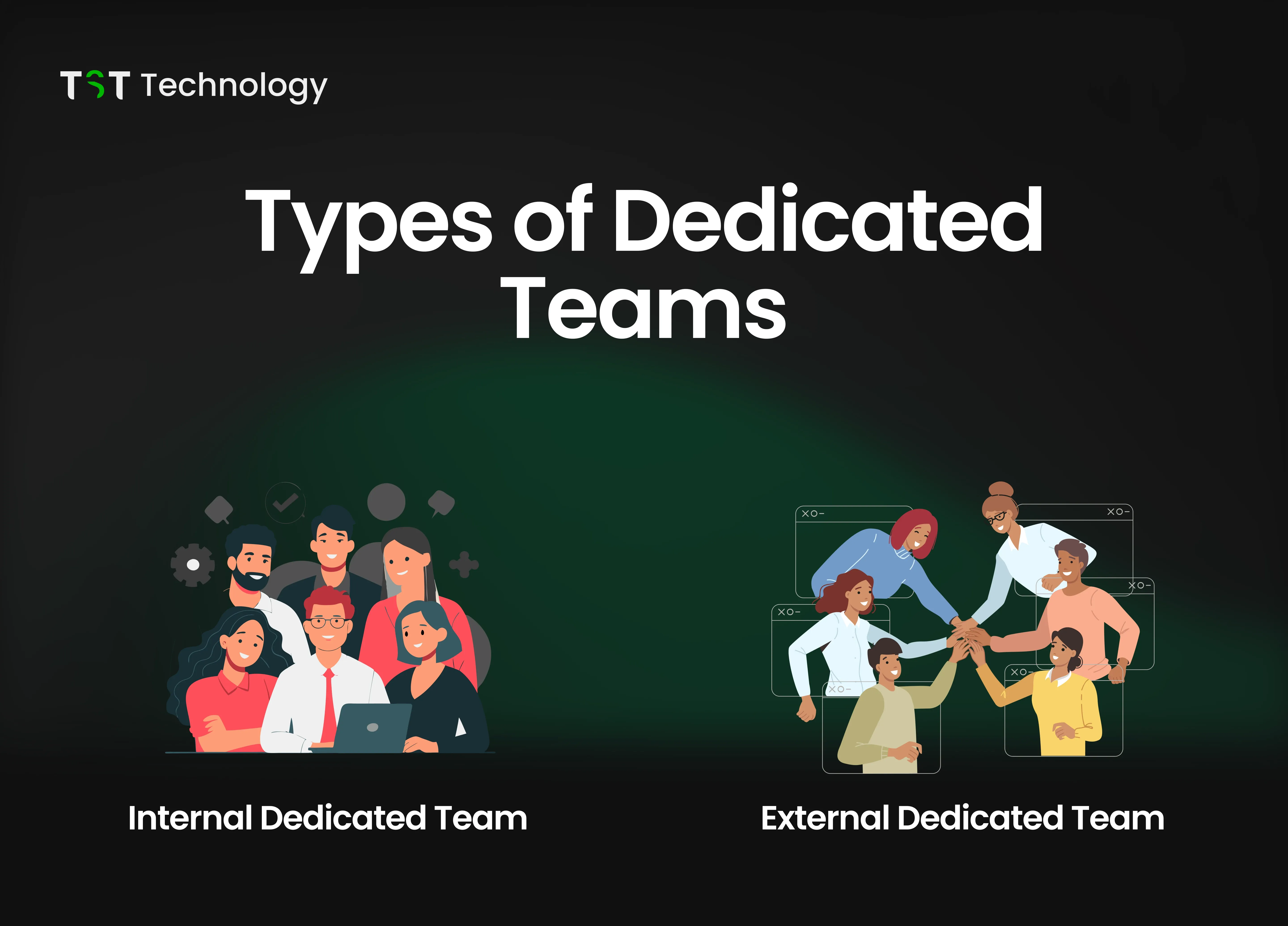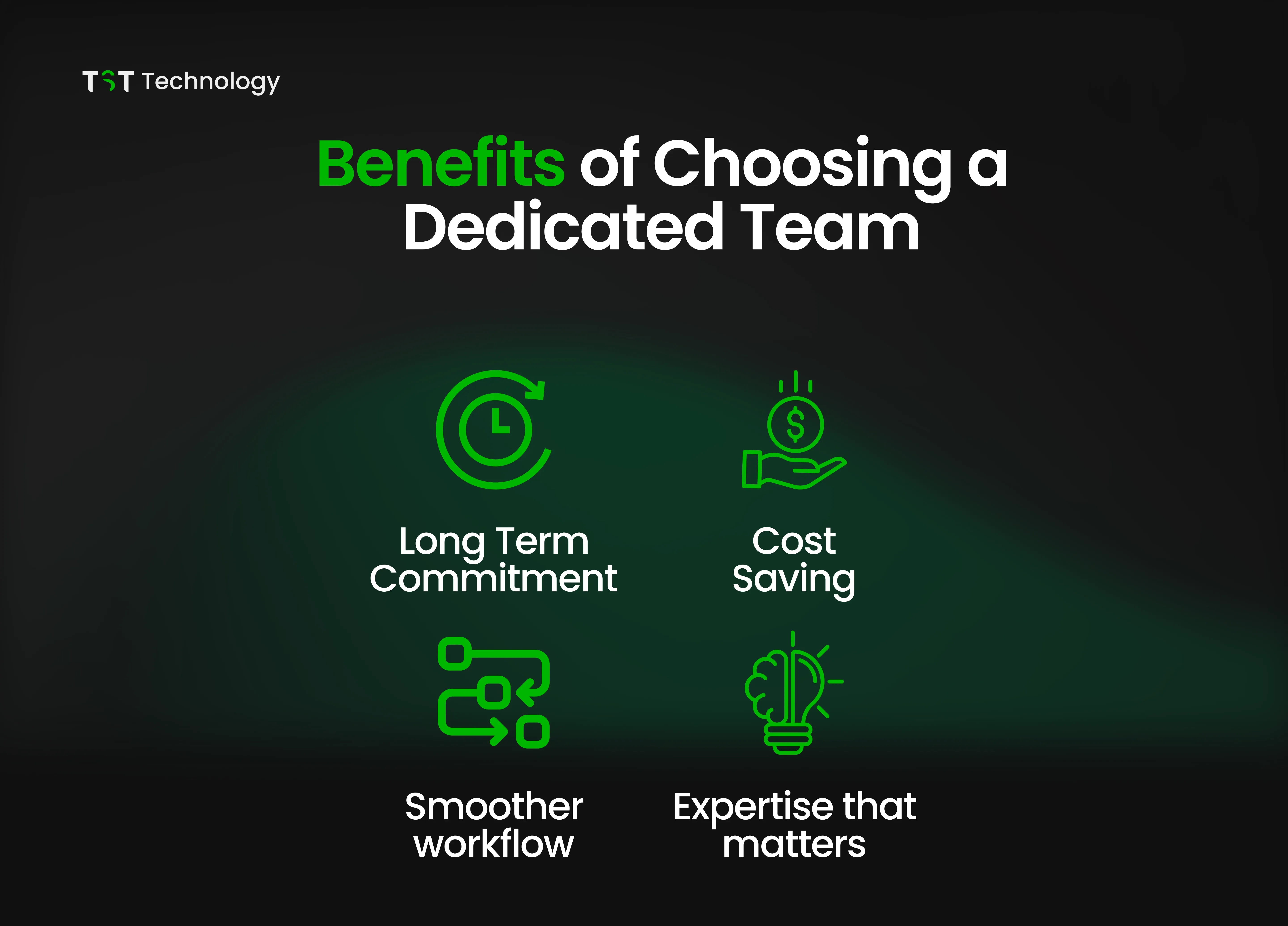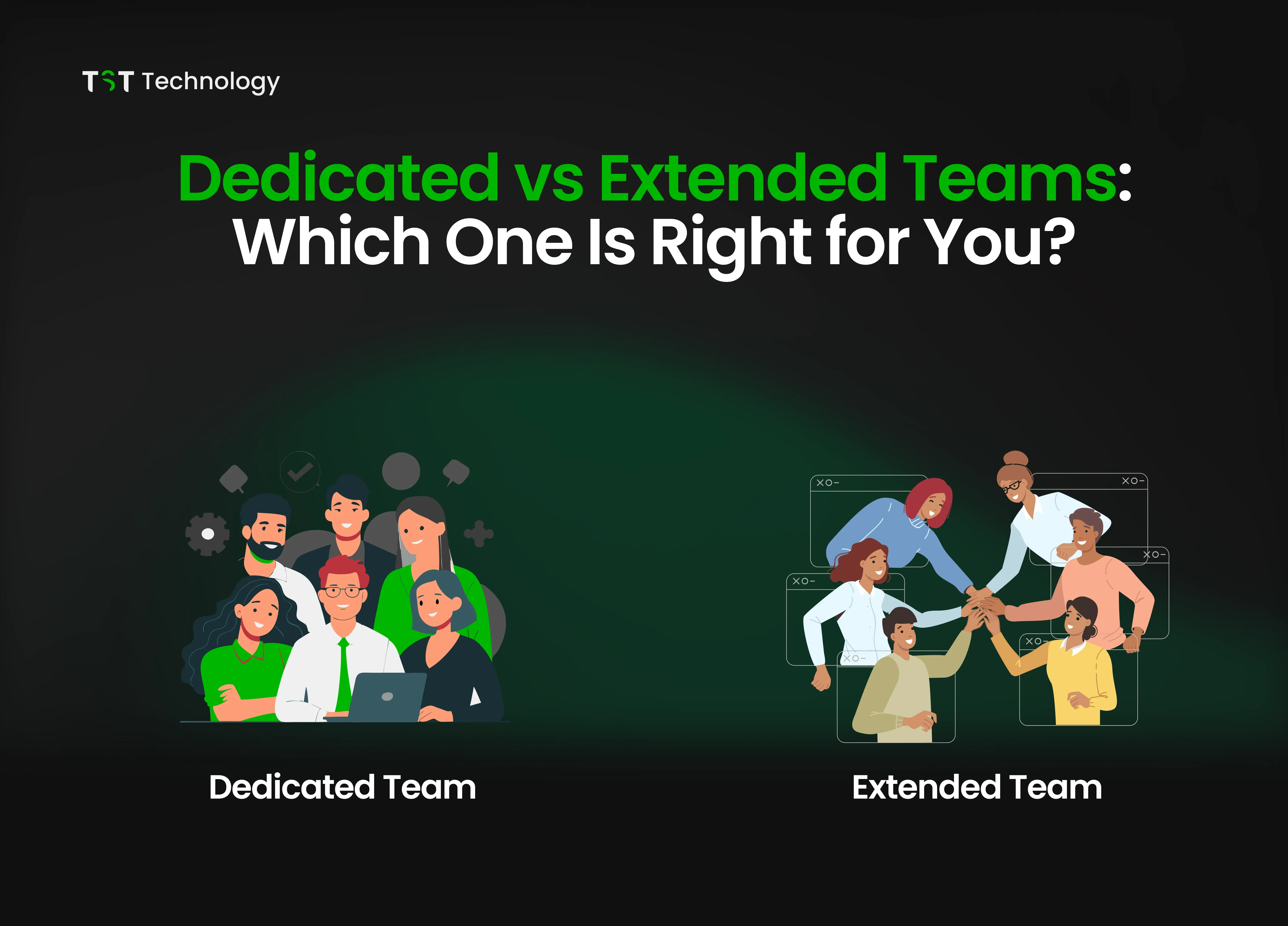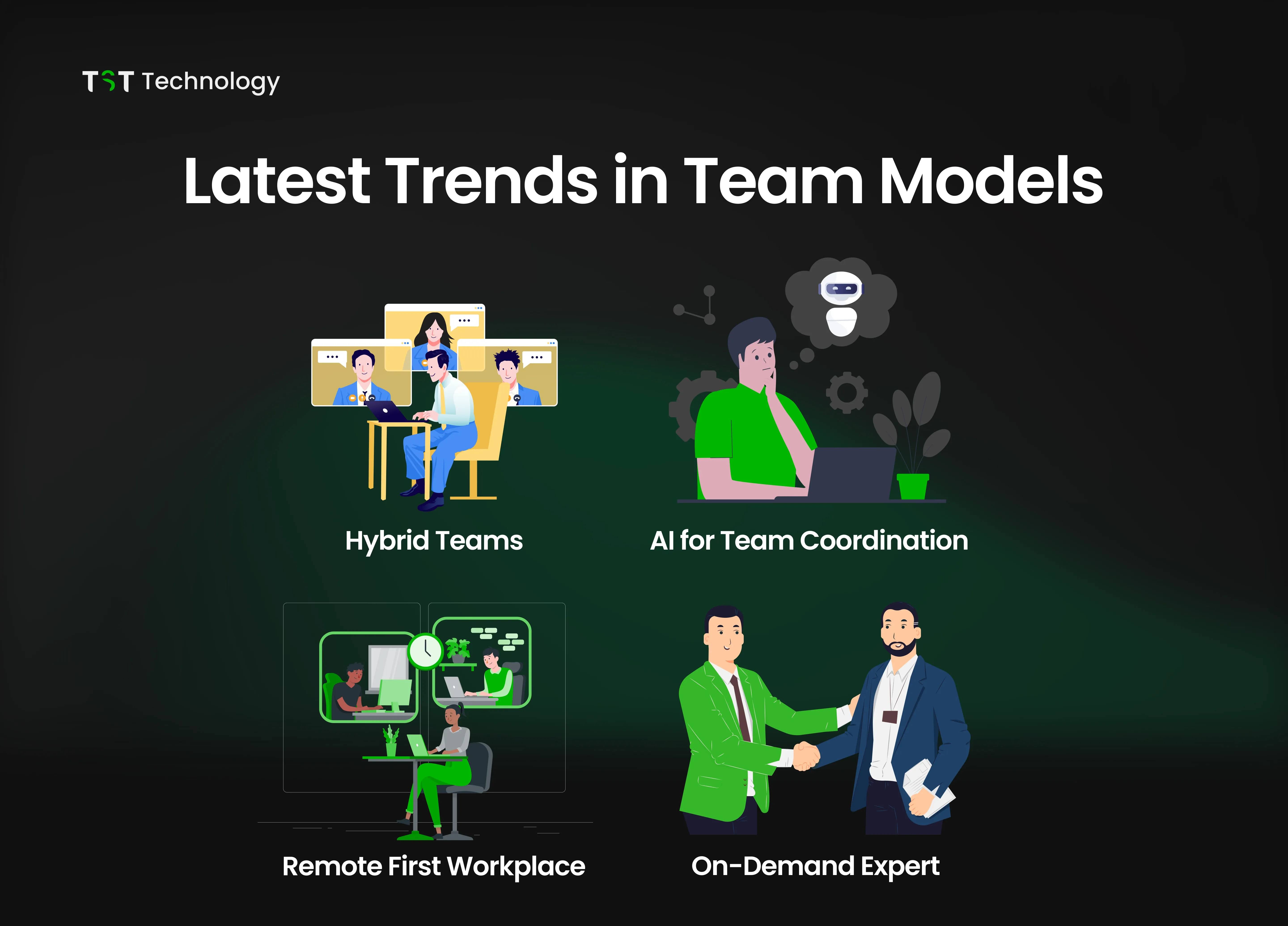Having trouble picking the right team for your project? You’re not the only one.
IT outsourcing is booming as more companies look for innovative ways to build software and digital products. According to recent research by Statista, the global IT outsourcing market is projected to hit $512.5 billion in 2024 and grow even further to around $777.7 billion by 2028.
That means more options and more confusion, especially when terms like dedicated team and extended team are used.
So, which setup is best for your business?
Don’t worry, we’re here to keep it simple. In this post, we’ll explain dedicated and extended teams, how they work, and when to choose one over the other.
What is a Dedicated Team?
A dedicated team is a group of skilled people who are brought together to focus on one project and work on it for a long time. Unlike freelancers or short-term hires, a dedicated team stays focused on one project, ensuring consistency, collaboration, and efficiency.
Many businesses, especially startups and outsourcing companies, opt for a dedicated team model because it offers long-term stability and access to skilled professionals without the hassle of hiring in-house employees.
Types of Dedicated Teams

A dedicated team can be internal or external:
- Internal Dedicated Team: Formed within the company, managers select skilled professionals for a specific project, such as a UI/UX team working on a mobile app.
- External Dedicated Team: Hired from an outsourcing company, allowing businesses to access specialized talent without recruiting in-house employees. This is common in software development, where companies employ remote teams for long-term projects.
If you're looking for a trusted, dedicated team for your project, contact us to discuss how we can help.
Benefits of Choosing a Dedicated Team

- Long-term commitment: A dedicated team stays focused on your project, leading to more consistent and high-quality results.
- Expertise that matters: You gain access to skilled professionals with real-world experience in app development.
- Cost savings: There’s no need to spend on hiring, onboarding, or training in-house staff.
- Smoother workflow: A stable team ensures clear communication and efficient project management throughout the development cycle.
What is an Extended Team?

An Extended Team is extra help for a company’s current team. Sometimes, the leading team needs help with tasks like development, design, or UI/UX. The company hires short-term employees to meet project deadlines and keep things running smoothly.
These extra team members can be freelancers, remote workers, or even outsourced professionals. They work closely with the core team to ensure the project is completed on time.
Why Do Companies Hire an Extended Team?
Sometimes, a project needs extra help, but hiring full-time employees isn’t the best option. An extended team allows businesses to hire skilled professionals quickly, without a lengthy hiring process.
These experts handle specialized tasks and help get the work done faster. Since many work remotely, it’s a flexible and cost-effective solution. Plus, businesses can scale up when needed and wrap up the project once it's complete, with no long-term commitments.
Extended Team Best for Scaling and Flexibility
An extended team supports your existing workforce by providing specialized skills and additional capacity. It is helpful for:
- Startups that need experts for specific tasks but don’t require an entire team.
- Mid-sized businesses accelerate projects without overburdening in-house staff.
- Big companies handle many projects smoothly without spending much time on lengthy hiring processes.
This model helps businesses scale quickly while maintaining quality and reducing overhead costs. To avoid scope creep and delays, see how Confirmation Bias Leads to Unrealistic Deadlines.
Choosing between a dedicated or extended team depends on your business stage, project scope, and growth strategy. Both models provide flexibility, expertise, and efficiency to support your success.
Key Differences Between Dedicated and Extended Teams
Factor | Dedicated Team | Extended team |
| Team Structure | Permanent Long-term hiring | Temporary Hire for the project, like a freelancer |
| Hiring Process | Hiring directly by the company | Outsourced contract-based |
| Work Duration | Long term | Short duration and flexibility |
| Cost | Hiring and other benefits included | Hiring only project-based |
| Work Location | Office and Hybrid | Remote work from home |
| Expertise | General skills and ongoing projects | Specialised skills and a specific project need |
| Scalability | Fixed team size, less flexibility | Upscale and more flexible |
| Project focus | Long-term project and core business focus | Urgent projects demand the right skills and dependable support. |
Dedicated vs Extended Teams: Which One Is Right for You?

Dedicated Team: Best for Long-Term Projects
A dedicated team is perfect when you need full-time experts focused only on your project.
- Startups that require a focused team for product development, branding, and scaling.
- Mid-sized companies are filling resource gaps in long-term projects.
- Large enterprises are investing in research and development, as well as the development of new products.
This method delivers skill, dedication, and cost savings without the need for a full in-house team.
Latest Trends in Team Models

1. Mixing Full-Time Teams with Freelancers
- Companies no longer only hire full-time employees. To gain more flexibility, they are combining regular staff with freelancers.
2. AI is Making Teamwork Easier
- AI tools help teams stay organized, track tasks, and remind people about deadlines.
3. More Companies Allow Remote Work
- Many businesses now let employees work from home, a café, or another country.
4. Hiring Experts Only When Needed
- Companies now hire experts for short-term projects instead of full-time employees for everything.
Conclusion
Whether you choose a dedicated or extended team depends on your project. A dedicated team is ideal when you need a full-time, long-term group solely focused on your project. However, an extended team could be perfect if you need extra hands or specialized skills to support your in-house team.
Do you need guidance or want to start working together? Schedule a consultation call with our experts today. We’re always here to chat.






